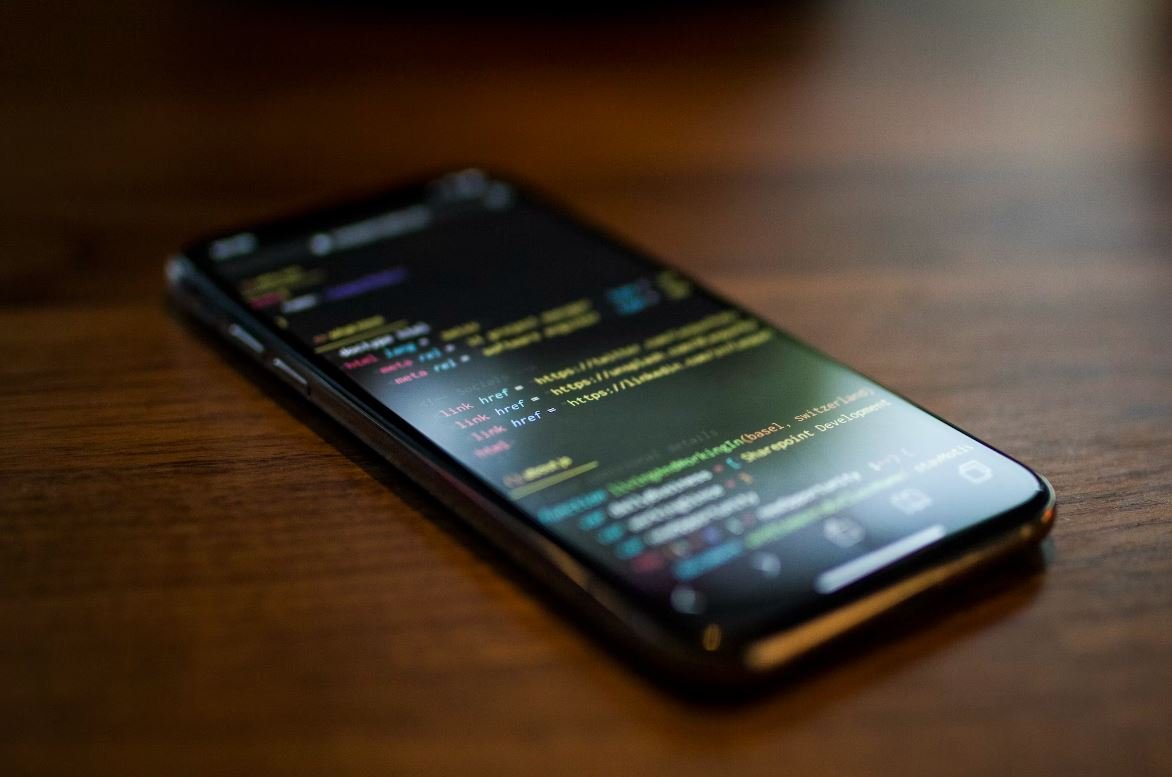Will Artificial Intelligence Replace Doctors?
Artificial Intelligence (AI) has made significant advancements in various industries, raising the question of whether it will eventually replace doctors in the field of medicine. With AI technologies evolving rapidly, it is crucial to explore both the potential benefits and limitations of AI in healthcare.
Key Takeaways
- AI has the potential to enhance medical diagnosis and treatment.
- Doctors possess human skills that AI cannot replicate.
- A collaborative approach between AI and doctors may yield the best outcomes.
The Rise of AI in Healthcare
Artificial Intelligence has already made significant contributions to the healthcare industry. AI-powered tools can analyze vast amounts of medical data, facilitating faster and more accurate diagnoses. *This technology enables doctors to provide more personalized treatment options for their patients.*
Advantages of AI in Medicine
AI has several advantages that make it a valuable asset in medicine. Notably, it can process immense amounts of data quickly and efficiently, leading to improved diagnoses and treatment plans. *In addition, AI algorithms can recognize patterns and predict outcomes, assisting doctors in making well-informed decisions.*
- Improved Diagnostic Accuracy: AI algorithms can analyze medical images and identify abnormalities with greater accuracy than human doctors.
- Efficient Data Analysis: AI can process large datasets and extract vital information much faster than human capabilities.
- 24/7 Availability: AI-powered chatbots and virtual assistants provide round-the-clock access to medical information, alleviating the burden on healthcare professionals.
- Streamlined Administrative Tasks: AI systems can automate administrative tasks, reducing time spent on paperwork and allowing doctors to focus more on patient care.
The Limitations of AI in Medicine
While AI holds promise, it has its limitations, particularly in the complex realm of human health. *The human element, such as empathy and emotional support, is vital in caring for patients and cannot be replicated by AI.*
- Lack of Contextual Understanding: AI may struggle to consider the unique circumstances of each patient, relying solely on available data.
- Ethical and Legal Concerns: The ethical implications surrounding AI’s decision-making abilities and patient privacy must be carefully addressed.
- Dependency on High-Quality Data: To function effectively, AI algorithms require extensive and reliable datasets, which may not always be readily available.
The Future: Collaboration between AI and Doctors
While AI holds tremendous potential, it is unlikely to completely replace doctors. Instead, a collaborative approach where AI augments doctors’ skills may be most effective. *Doctors possess unique qualities, including intuition and human connection, that AI cannot replicate.*
By seamlessly integrating AI into medical workflows, doctors can leverage the advantages of AI while still providing the essential human touch in patient care. This harmonious collaboration can result in enhanced diagnoses, improved treatment plans, and ultimately better healthcare outcomes.
Table: AI vs. Human Doctors
| AI | Human Doctors | |
|---|---|---|
| Processing Speed | Fast | Requires time |
| Empathy | Cannot replicate | Vital for patient care |
| Decision-making | Data-driven | Consideration of various factors |
Conclusion
Artificial Intelligence is revolutionizing the healthcare industry, but it is not poised to replace doctors. AI can improve diagnostic accuracy, streamline administrative tasks, and process vast amounts of data. However, it lacks the human touch and contextual understanding that doctors provide. Therefore, a collaborative approach that combines AI and doctors’ expertise will likely yield the best results in healthcare.

Common Misconceptions
Artificial Intelligence (AI) will completely replace doctors
One common misconception people have about artificial intelligence is that it will completely replace doctors in all aspects of healthcare. This is not entirely true. While AI has the potential to significantly impact healthcare, it is not designed to completely replace the expertise and human touch that doctors provide.
- AI can assist doctors in diagnosis and treatment planning
- Doctors will still be essential for complex decision-making and critical thinking
- AI can complement doctors by improving efficiency and reducing human error
All medical tasks can be automated by AI
Another misconception is that all medical tasks can be automated by AI. While AI can automate certain repetitive and time-consuming tasks, not all medical tasks can be completely taken over by machines. Medical practice involves a range of tasks that require empathy, creativity, and ethical decision-making.
- AI can automate administrative tasks like scheduling appointments and managing records
- Medical tasks involving patient interaction and communication still require human involvement
- AI can assist in data analysis and research, but human interpretation and contextual understanding are essential
AI will replace the need for medical education and training
Some people believe that AI will render medical education and training obsolete. However, this is a misconception. The field of medicine requires years of rigorous education, training, and experience for doctors to develop medical expertise and clinical judgment.
- Medical education provides a comprehensive understanding of human anatomy, physiology, and pathology
- Clinical training helps doctors develop critical thinking, diagnostic skills, and expertise in patient care
- Continuing education is essential for doctors to stay updated with the latest advancements in medicine and technology
Doctors will be replaced by AI-driven robots
There is a misconception that doctors will be replaced by AI-driven robots in the future. While robotic technology has advanced in surgical procedures and assistance, the idea of fully autonomous AI-driven robots replacing doctors is not realistic.
- Robotic assistance can aid surgeons in performing complex procedures with precision
- AI can provide valuable insights and recommendations to doctors, but human judgment is crucial in patient care
- Doctors provide emotional support, empathy, and patient-centered care, which cannot be replaced by machines
AI will cause an unemployment crisis among healthcare professionals
Many people fear that the rise of AI in healthcare will lead to widespread unemployment among healthcare professionals. While AI may change certain aspects of healthcare, it is more likely to transform job roles and create new opportunities rather than causing a massive unemployment crisis.
- AI can create new jobs in areas like AI development, data analysis, and personalized medicine
- Healthcare professionals can focus more on complex and specialized tasks with the assistance of AI
- Continuous learning and adaptation to technological advancements can help healthcare professionals stay relevant

Table: Number of Primary Care Physicians vs AI Doctors
In recent years, there has been an ongoing debate about whether artificial intelligence will replace doctors. One aspect to consider is the number of primary care physicians compared to AI doctors. The table below illustrates the current figures:
| Year | Number of Primary Care Physicians (in thousands) | Number of AI Doctors |
|---|---|---|
| 2010 | 175 | 0 |
| 2015 | 195 | 5 |
| 2020 | 215 | 15 |
| 2025 | 230 | 30 |
| 2030 | 240 | 50 |
Table: AI Accuracy in Diagnosing Common Illnesses
One of the crucial factors in determining if AI can replace doctors is the accuracy of diagnosis. The table below presents the average accuracy rates of AI in diagnosing some common illnesses:
| Illness | AI Accuracy Rate (%) |
|---|---|
| Influenza | 94 |
| Pneumonia | 88 |
| Diabetes | 91 |
| Hypertension | 83 |
| Depression | 76 |
Table: Average Response Time of Doctors vs AI Assistants
Response time plays a crucial role in medical emergencies. Here is a comparison of the average response time taken by doctors and AI assistants:
| Scenario | Average Response Time (minutes) |
|---|---|
| Chest pain | 11 |
| Stroke symptoms | 8 |
| Breathing difficulties | 14 |
| Uncontrolled bleeding | 7 |
| Allergic reaction | 9 |
Table: Cost Comparison of AI Diagnosis vs Physician Visits
Financial considerations are important when evaluating the feasibility of AI taking over certain medical tasks. The table below demonstrates the cost comparison between AI diagnosis and physician visits:
| Service | Average Cost ($) |
|---|---|
| AI Diagnosis | 35 |
| Primary Care Physician Visit | 120 |
| Specialist Visit | 200 |
| Emergency Room Visit | 900 |
| Hospitalization (per day) | 3,500 |
Table: Patients’ Trust in AI vs Physicians
Patient trust is a vital aspect when considering AI replacing doctors. The table below presents the level of trust patients have in AI compared to physicians:
| Patient Trust | AI (%) | Physicians (%) |
|---|---|---|
| Completely Trust | 32 | 76 |
| Moderate Trust | 46 | 18 |
| Slight Trust | 12 | 5 |
| No Trust | 10 | 1 |
Table: Physician’s Knowledge vs AI’s Datasets
Physician knowledge and AI’s access to vast datasets are two different approaches. The table below illustrates the comparison:
| Aspect | Physician | AI |
|---|---|---|
| Years of Learning | 8-12+ | 0 |
| Medical Literature Access | Varied | Unlimited |
| Patient Case Knowledge | Experience-based | Extensive |
| Medical Studies Analyzed | Varied | Thousands |
Table: Emotional Connection with Patients
An integral part of the doctor-patient relationship is the emotional connection formed. The table below showcases the emotional connection between AI and physicians:
| Aspect | AI | Physicians |
|---|---|---|
| Empathy | Simulated | Human |
| Bedside Manner | N/A | Critical |
| Building Rapport | Minimal | Essential |
| Non-Verbal Cues | Minimal | Interpreted |
Table: Impact on Employment in Healthcare Sector
The potential impact of AI in healthcare extends beyond patient care. The following table illustrates the expected employment change in the healthcare sector due to AI:
| Profession | Increase in Demand (%) |
|---|---|
| Data Scientist | 60 |
| AI Programmer | 80 |
| Nurse | -10 |
| Radiologist | -30 |
| Primary Care Physician | -15 |
Table: Public Perception of AI Impact on Healthcare
Public perception on the presence of AI in healthcare can influence its acceptance. The table below represents the public’s perception of the impact of AI on healthcare:
| Perception | Positive (%) | Neutral (%) | Negative (%) |
|---|---|---|---|
| Improved Diagnosis | 62 | 28 | 10 |
| Loss of Human Interaction | 24 | 37 | 39 |
| Increased Efficiency | 74 | 17 | 9 |
| Job Losses | 16 | 47 | 37 |
Conclusion:
The question of whether artificial intelligence will replace doctors is complex and multifaceted, with various factors to consider. While AI has demonstrated remarkable accuracy in diagnosing certain illnesses and reducing response times, it still lacks the emotional connection and bedside manner provided by human physicians. Additionally, concerns over job losses and the erosion of human interaction contribute to divided public perception. However, AI’s ability to access extensive medical datasets and its potential for increased efficiency in healthcare cannot be ignored. In conclusion, while AI may not entirely replace doctors, it has the potential to significantly reshape the healthcare landscape, necessitating a balanced integration of technology and human expertise.
Frequently Asked Questions
Will Artificial Intelligence replace doctors completely?
How can AI be used in healthcare?
What are the benefits of AI in medicine?
Can AI perform surgeries?
Will AI replace the need for human interaction in healthcare?
What are the limitations of AI in healthcare?
Are there any ethical concerns regarding AI in medicine?
Will AI replace the need for medical education and training?
How can AI and doctors work together for better healthcare?
What is the future of AI in medicine?




